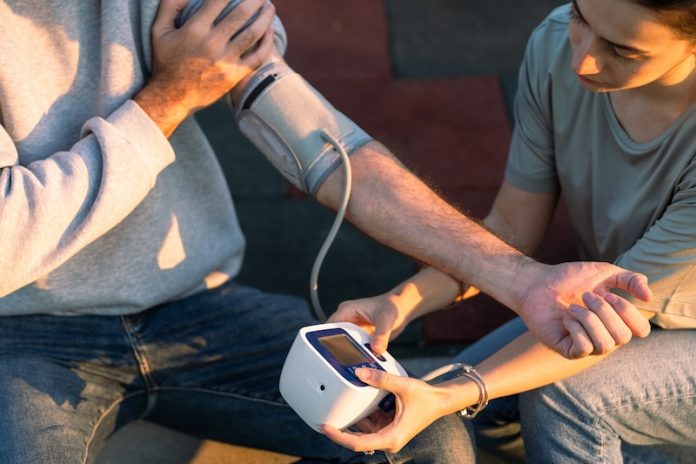
A new study from the University of Miami has found an important link between blood pressure and brain health, especially as we grow older.
The findings may help us better understand how to reduce the risk of memory loss, strokes, and dangerous falls as we age.
Blood pressure is the force of blood pushing through the arteries. It’s measured with two numbers. The first number, called systolic pressure, shows the pressure when the heart beats.
The second number, called diastolic pressure, shows the pressure when the heart rests between beats. If the diastolic number is 80 or higher, doctors begin to worry that the pressure may be too high even when the heart is resting.
In this study, scientists looked at a problem in the brain called white matter lesions. These are small areas of damage, like scars, that affect how different parts of the brain communicate with each other. When these brain “scars” appear, they can slow down thinking, cause balance problems, and increase the risk of falls and strokes.
The researchers studied over 1,200 people aged 50 or older. They found that people with lower diastolic blood pressure—below 80—had fewer white matter lesions in their brains. This was a surprise because most past research focused only on the first number (systolic pressure) as the main concern for brain health.
The study also showed that not all parts of the brain were affected the same way. People with a diastolic number above 90 had more of these brain scars in specific areas, while those with lower diastolic pressure had fewer.
This matters because white matter acts like highways in the brain, allowing signals to travel quickly. When these highways are damaged, it’s like driving on roads full of potholes—messages move slower or get lost.
As people age, white matter lesions become more common. By age 60, around 20% of people have them, and that number goes up as we get older. But this study offers hope. By keeping diastolic blood pressure at a healthy level, we may be able to reduce the damage and protect our brain as we age.
The research team, led by Michelle R. Caunca, believes this finding shows that caring for our blood pressure is about more than just the heart—it’s also about keeping our brains working well. They recommend regular blood pressure checks and working with doctors to stay within a healthy range.
In conclusion, watching our diastolic blood pressure may help keep our minds sharp and reduce the risk of strokes, memory problems, and falls later in life. It’s another reason why keeping an eye on your blood pressure can help you live a longer and healthier life.
If you care about blood pressure, please read studies that black licorice could cause dangerous high blood pressure, and this common plant nutrient could help reduce high blood pressure.
For more information about blood pressure, please see recent studies about how coffee influence your risk of high blood pressure, and results showing this olive oil could reduce blood pressure in healthy people.
Copyright © 2025 Knowridge Science Report. All rights reserved.



